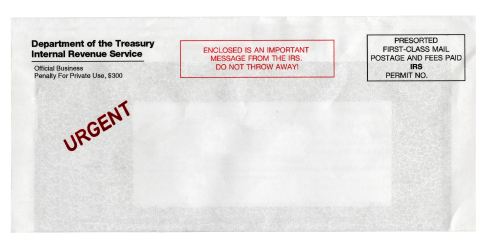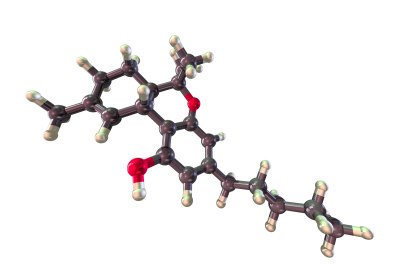To most of us, anxiety is that uneasy feeling we get when confronted with an uncertain future — it’s fear in the absence of clear and present danger. But to a psychologist, it’s a complex process that features multiple changes in biochemistry — changes that are directly influenced by the environment and by our prior experience (including our memories).
Because everybody experiences anxiety, it’s a challenge to distinguish normal from abnormal (same with sadness and depression). Most clinicians draw the line where anxiety interferes with our ability to function — in other words, becomes a hindrance.
The biochemistry of anxiety centers around cortisol, a stress hormone secreted by the adrenal glands. Cortisol levels are naturally highest early in the morning and lowest in the middle of the night. When stressed (by something real or imaginary), the body releases cortisol as a protective response. That’s good. Too much cortisol, however, can unnecessarily elevate blood sugar levels and blood pressure, as well as lower immunity to infection and illness.
That’s one reason why physicians recommend reducing stress as a pathway to improved health.

Let’s say you open the mailbox to find a letter from the IRS. It’s a good bet that you immediately experience anxiety. That anxiety level is increasing even before you open the envelope and begin to read. Then, depending on the contents of the letter, it either returns to normal, or may shoot still higher.
Here’s what might be happening in your body:
- First, cells in the hypothalamus have signaled the pituitary gland to release a chemical messenger called ACTH into the bloodstream. Its destination: the adrenal glands that sit atop the kidneys. ACTH stimulates the adrenals to produce additional cortisol from cholesterol.
- This cortisol is pumped into the body to increase sensitivity to adrenalin in your heart and blood vessels.
- Your heart rate increases; your heart muscle contracts.
- The walls of blood vessels narrow, elevating blood pressure.
- Blood is diverted to other organs and muscles that may need it.
The trigger for all this? Three little words: ‘Internal Revenue Service’.
Suppose you’re having lunch on your own in a restaurant. Your thoughts are on your plans for the afternoon — a business meeting at two, pick-up at the dry cleaners on your way home. Just then you catch a glimpse, across the crowded cafe, of somebody you haven’t seen in years. This person once dumped you rudely following a passionate affair. Suddenly, your pulse is pounding, your stomach muscles have clenched, even the food abruptly changes taste. You’re possessed by an urge to flee.
Let’s say you escape unnoticed. Once safely on the street, you find yourself puzzled by the intensity of your own reaction. The voice of reason returns, wanting to know why you panicked. After all, the affair ended long ago. Another few minutes pass and you’re calm. Back to worrying about your two o’clock meeting.
You just had a minor anxiety episode. The trigger: a surprise encounter with negative emotions from the distant past.
Now imagine you had those same feelings but couldn’t figure out what was triggering it. That’s a bit like how it feels to suffer from an anxiety disorder.
Anxiety in Recovery
Anxiety has always been common among people new to recovery. There’s a reason Twelve Step slogans focus on calm: Easy Does It, Keep It Simple, One Day At A Time. Most of us just aren’t that good at it.
In some cases, problems with anxiety have been there since childhood. Others develop panic as young adults. Still others suffer anxiety as long-term aftereffects of drinking or drug use on our vulnerable central nervous system. All present a problem to someone trying to stay clean and sober.
Anxiety isn’t just unpleasant. It’s a prime contributor to poor decision-making. The more anxious you feel, the more likely you are to act on impulse, without weighing or even considering the consequences. Your brain is focused on relieving anxiety, not on the rational processes needed for the exercise of good judgment.
It’s not only recovering people who suffer. Living with an active alcoholic or addict can be very stressful. That has health consequences too.
This is where the close ties between mind and body can become a real asset. By experimenting with and building some new skills, we improve our ability to access a state of calm when it’s most needed. In other words, we gain more control over how we feel and what we do — and that is a most desirable state of affairs.
We’re all familiar with some of the tools for generating calm. Common relaxation exercises include
- Meditation
- Yoga, Tai Chi, and other physical disciplines
- Relaxation breathing
- Biofeedback
- Massage
Of course, many of these combine with one another. Breathing properly, for instance, is a key element of yoga.
Here’s a great article from the Mayo Clinic on the benefits of relaxation exercises. It includes a number of links to more information on the benefits of particular practices. Relaxation techniques: Try these steps to reduce stress
Regular practice will build your body’s ability to cope with the physical effects of anxiety and return quickly to a healthier, more clear-headed state.
Here’s a New York Times article with more perspective on anxiety: Searching the Brain for the Roots of Fear














I would also add regular walks in nature for at least 20 minutes is beneficial in alleviating anxiety.